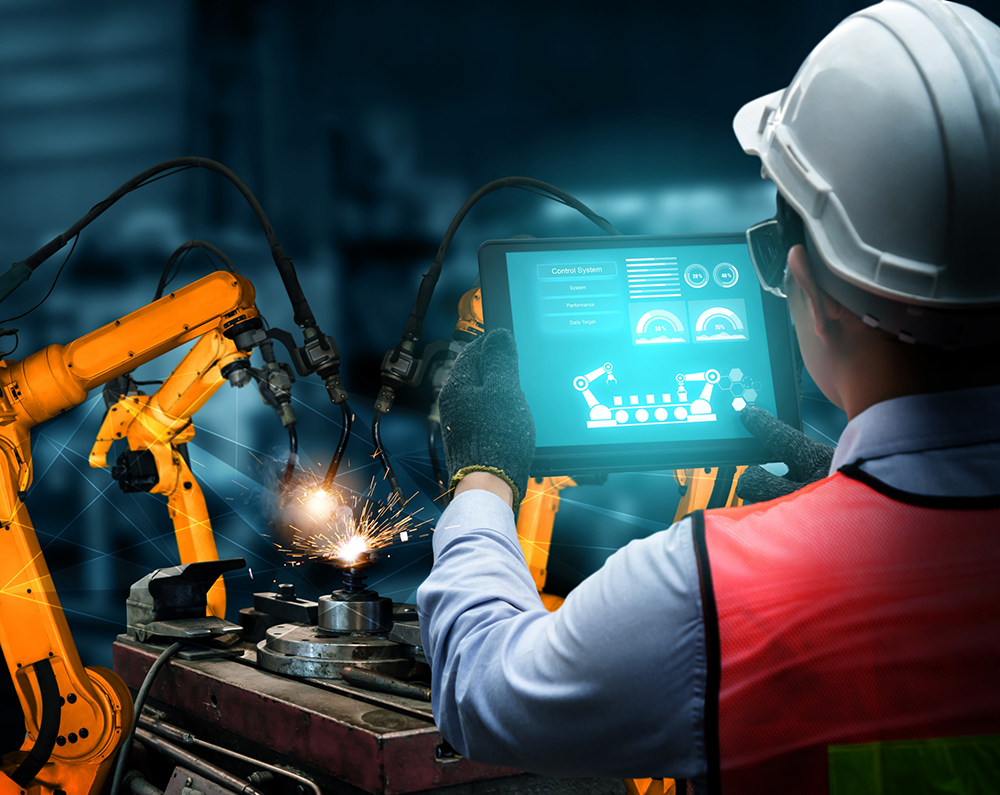

Table of Content
In the hotel business, where artificial intelligence in the hospitality industry is optimizing guest experiences and streamlining your business processes, staying ahead means embracing improvement. With AI, it is not just a buzzword; it’s rapidly transforming how hotels engage with guests and increase efficiency.
The sector flourishes on promising luxury, comfort, and error-free experiences. Hospitality is being revolutionized by artificial intelligence. Whether predictive customer needs or hyper-personalized offerings, AI-powered solutions assist your business in enhancing communication, automating mundane responsibilities, and improving service quality and operation efficiency.
For hotels or resorts wanting to steer clear of customary tactics, this blog walks you through the most powerful AI examples in the hotel services sector. So, let’s read on to learn more.
As of 2023, approximately 11 percent of European hotel businesses were leveraging AI, with a significant number expressing interest in implementing it in the future.
Korcomptenz will help you with AI integration to improve guest experience and operational efficiency

AI Is Transforming Hotel Businesses
Consider a world where resorts or hotels predict what you need before asking. This is where AI comes into play in the hospitality industry, where data analytics, machine learning, and innovative technology merge to elevate your hotel’s guest experiences.
Nowadays, chatbots and AI-powered apps read huge data sets quickly, thereby detecting trends, improving decision-making, and ensuring that your hotel management is the best. This point can be explained with an example. For instance, AI keeps tabs on booking patterns, understands your guests’ likes and dislikes, and refines room allotments to match your customers’ personal choices.
Then, what is the outcome? It’s an impeccable, personalized stay that gives your guests the best experience of their lives, not just a transaction.
Chatbots are changing the game in hospitality, handling bookings, guest inquiries, and on-site requests 24/7. This frees up staff for more meaningful interactions while ensuring faster response times.
But hospitality AI solutions go beyond chatbots. AI-powered systems analyze guest preferences in real-time, tailoring recommendations for activities, dining, and services to create a truly personalized stay.
Hotels are already seeing big wins. One brand cut billing-cycle processing time by 85 percent, bringing it down from 48 hours to just seven. AI also helped reduce missed or adjusted guest stays by 50 percent year over year.
The industry is taking note. A PwC report found that 70 percent of hotel executives want to automate operations to boost productivity. Deloitte’s latest survey shows that 52 percent of customers expect AI in customer interactions, while 44 percent anticipate its role in guest engagement.
AI is set to lead hospitality innovation over the next two years, with hotels using it to enhance guest experiences, streamline operations, and drive revenue. Now is the time to invest—early adopters will gain a clear edge before AI becomes the industry standard.
Before we delve into various use cases of AI in the hospitality industry, let’s do a reality check of some facts and figures:
A 2025 Hotel Tech Report survey of 400 guests revealed fascinating insights into how AI is shaping hotel experiences. Here’s what they had to say:
- 70% of guests appreciate chatbots for handling basic questions efficiently.
- The top reason guests use hotel chatbots is to get the Wi-Fi password. Next on the list are setting wake-up calls and checking facility hours.
- 58% believe AI enhances both the booking process and overall stay.
- 65% of travelers expect hotel technology to surpass what they have at home.
AI-Powered Hospitality: Enhancing Service While Protecting Data
Now, let’s explore some top hospitality marketing artificial intelligence examples and how they’re making an impact in the industry.
Understanding Guest Sentiment
AI-driven tools enable hotels to track guest opinions by reading reviews, social media, and direct feedback in real-time. Hotels can adjust their services by identifying trends and finding problems early. It’s a clever method to remain competitive, enhance experiences, and make every stay better than the previous one!
Proactive Equipment Maintenance
AI transforms hotel maintenance. For example, rather than waiting for some issues to occur, AI systems can assess information to detect problems beforehand. It implies fewer interruptions, reduced cost of repairs, and a seamless experience for your guests.
Intelligent Guest Assistance
AI-enabled guest assistance services take hotel services to the next level, providing quick answers and customized suggestions. The AI systems adjust and discover from every communication, recommending the best dining areas, touristy spots, and personalized room services that match guests’ likes and preferences. This is one of the hospitality marketing artificial intelligence examples that most hotels use these days.
Adaptive Pricing Strategies
Al-powered dynamic pricing technology reviews massive amounts of information, including occupancy, demand, competing hotel rates, and weather, to adjust room rates in real time. This optimizes revenue while preserving market price competitiveness. Dynamic room pricing allows hotels to maximize their revenue management strategy, boost bookings, and respond quickly to changing market conditions.
Personalized In-Room Experience
Hotel stays are being made more personalized than ever by the use of AI technology. Clever systems are capable of adjusting room temperature, lighting, and entertainment choices based on guest preferences—either inferred from previous visits or selected at the time of reservation.
When visitors come, their ideal setting is already done, making the experience smooth and effortless. As one of the hospitality marketing AI examples, such high degrees of personalization enhance guest satisfaction and create a new standard for modern hospitality.
Smart Chatbots
Hotels are utilizing AI chatbots to enhance customer interactions. Ranging from taking bookings to answering regular questions, these virtual assistants provide instant help through text or voice conversations. They work 24/7, making sure the customers always receive help whenever required.
Apart from convenience, hospitality marketing AI examples such as these chatbots also lighten the load for hotel staff so that they can concentrate on more pressing and individualized guest requirements. This results in quicker responses, better efficiency, and a generally smoother experience for both guests and employees.
Instant Security Monitoring
Hotel AI-based security systems watch live video feeds, rapidly detecting suspicious activity and alerting hotel staff to threats. The technology ensures the security of guests and staff by facilitating quicker responses to security issues. It provides a proactive layer of monitoring, preventing problems before they arise and keeping the environment safe.
Seamless AI-Powered Reservations
AI-based booking systems simplify reservations, enabling guests to view availability, book rooms, and modify easily. The systems provide personalized recommendations based on previous stays and preferences. In addition to convenience, AI assists hotels in optimizing occupancy and revenue by dynamically adjusting rates and promotions and forecasting peak demand for improved planning.
Optimized Stock Control
Artificial intelligence-based systems allow hotels to forecast demand by examining historical patterns, seasonal fluctuations, and future bookings. This helps keep crucial supplies—such as food, bedding, and toiletries—in stock, reducing waste and unnecessary expenses while maintaining operations seamlessly.
Customized Marketing
AI helps hotels develop personalized marketing based on guest behavior and interest. Hotels can stimulate engagement, build guest loyalty, and optimize repeat stays by offering promotions and messages tailored to interests. The personalized method makes the offer more relevant, making guests likely to recommend your hotel.
Intelligent Energy Efficiency
Have you ever walked into a hotel room that gets you? That’s AI working behind the scenes! Smart hotel tech can fine-tune heating, AC, and lighting based on real-time occupancy, weather, and past usage patterns—cutting energy costs while keeping guests comfortable. Plus, it’s a win for sustainability! Hospitality marketing artificial intelligence examples like these show how hotels use AI to be efficient and eco-friendly without guests lifting a finger.
Challenges in AI Adoption for Hospitality
It’s not without challenges bringing AI to hospitality, careful planning is necessary to execute it well. Companies need to work through these challenges to unlock hospitality AI solutions’ full potential and have a smooth roll-out. Here are some significant challenges to be aware of:
Finding the Right Mix of AI and Human Touch
Getting the right mix of artificial intelligence and human interaction is tricky. Overreliance on automation may make guest interactions seem too impersonal. Automating mundane work, such as answering frequently asked questions, works best so staff can attend to significant, personalized interactions. Technology supports service without stripping away the warmth and humanity that make a stay worthwhile.
Managing Implementation Expenses
The upfront cost of AI for hospitality—buy, integration, and training expenses—can be prohibitive for the majority of hotels.
Firms can hire AI as a Service (AIaaS) models to control expenses. These subscription-based models allow hotels to leverage scalable hospitality AI solutions without incurring huge initial expenses, making cutting-edge technology more accessible and affordable.
System Integration Challenges
Integrating AI with current hotel systems can be complicated and will disrupt operations. Selecting AI solutions that are compatible or implementing middleware can ease integration, facilitating a smooth transition and more creative use of data.
Ethical Issues in AI Implementation
Responsible use of AI means no biases in autonomous decisions that will impact guest experience. Current routine audits and servicing guarantee fairness and transparency, while diversity in training data guarantees reduced bias outcomes.
Protecting Data and Ensuring Security
With AI managing sensitive guest data, maintaining strong security measures is significant for building trust. Hotels must enforce strict cybersecurity protocols, comply with data protection laws, and regularly update their AI systems to keep guest information safe.
The Future of AI in Hospitality: Enhancing Personalization
In the future, AI in hospitality will make tremendous leaps forward by including advanced technologies to provide even more tailored experiences. These are some of the most important areas in which AI-powered hospitality solutions will be making a difference:
IoT in Rooms
Introducing IoT to hospitality will make hotel rooms smarter, where devices interact harmoniously. AI-based automation can automate lighting, temperature, and window shades according to guest preferences to provide a personalized experience. Combining IoT and AI improves comfort with ease without needing manual intervention.
Enhanced Data Insights for Streamlined Operations
AI-powered analytics will allow hotels to assess vast magnitudes of data in real time, streamlining resource management, staffing, and energy efficiency. This translates into lower costs and a hassle-free guest experience.
Implementation of Generative AI
Generative AI will revolutionize hospitality by providing real-time customized experiences. Hotels can utilize AI to personalize room ambiance, entertainment, and dining suggestions according to guest choice and ambient conditions such as weather
Sophisticated language models will enhance multilingual communication, providing smooth interactions with global visitors. AI-generated content will also make travel guides and suggestions more personalized and interactive.
Voice-controlled assistants for Room Services
Voice assistants powered by AI enable guests to easily control room settings, order services, and retrieve information. Integrated smoothly with hotel infrastructure, they increase convenience while introducing a touch of personalization to the experience.
AR & VR Enhancing Booking and Guest Experiences
AR and VR technology will be at the forefront of the future of AI in hospitality. They will enable visitors to view hotel rooms and facilities virtually before they set foot on the premises. These virtual previews give a realistic glimpse of accommodations, facilities, and local attractions, enabling travelers to make more informed booking choices.
Why Is Korcomptenz Your Ideal AI Partner in Hospitality?
As a reliable AI development company, we excel at providing innovative solutions for artificial intelligence in the hotel sector to aid companies in improving the guest experience and optimizing operations. With our knowledge of AI in hotel services, we facilitate the smooth integration of innovative technologies to drive efficiency and personalization.
With our AI development services, we design customized solutions like intelligent room automation, data-based decision-making software, and AI-driven chatbots for real-time customer engagement. Whether you need to streamline backend processes or develop memorable guest experiences, our AI solutions are made to drive hospitality transformation.
Final Words
Artificial intelligence in the hospitality industry is just the tip of the iceberg, and its effect is irreversible. Whether it’s guest experience or operational excellence, technology is ushering in new doors for even more excellent global hotel opportunities. Organizations that apply AI already see the rewards—increased efficiency, customized services, and enhanced profitability.
Today, technology is becoming more sophisticated, and AI in the hotel industry will be the gold standard of this sector, with new standards for guest satisfaction and business development. The time has come to adopt AI-based innovation and take your hospitality services to the next level. The future is bright, seamless, and AI-driven! Upgrade your hospitality tech. Connect with us today!

Focus on you
FAQ’s About AI in Hospitality
What examples of artificial intelligence are related to the hospitality industry?
Hospitality AI encompasses virtual concierges enabled by AI, facial recognition for smooth check-ins, machine learning, and data-based personalized guest experiences, chatbots for assistance with bookings, and predictive analytics to forecast demand.
How is AI being used in hotels?
Hotels use AI for tailored guest experiences, predictive maintenance, and simplified operations. AI-enabled chatbots handle queries and bookings, and also facial detection ensures seamless check-ins. Machine learning increases pricing and demand prediction, and robotic automation boosts housekeeping as well as room service. AI analytics also improves guest satisfaction through personalized recommendations and services.
What are the challenges of AI in the hospitality industry?
AI hospitality has challenges such as high installation fees, concerns about data privacy, and requiring experts. Merging with already established systems might be complicated, and excessive automation may limit personalization of the guest experience. Further, guaranteeing AI decision-making is brand-aligned and complies with regulatory bodies is also a significant challenge.
What is the future of technology in the hospitality industry?
The future of hospitality technology is AI, automation, IoT, and immersive experiences. Smart rooms and contactless and AI-powered personalization will increase guest satisfaction. Blockchain provides secure transactions, and robotics make operations more efficient. Data analytics will inform improved decision-making, and sustainable tech solutions will define green practices, redefining efficiency and customer interaction in the sector. Ongoing innovation will make hospitality companies competitive in a changing digital environment.
What is AI-powered customer service in hotels?
Artificial intelligence-based customer service in hotels enriches the guest experience with automation and personalization. Chatbots respond to questions 24/7, virtual concierges book rooms, and AI-based analytics forecast guest preferences for customized services. Voice assistants manage room settings, and sentiment analysis enhances service quality. AI streamlines hotel operations, cuts back on wait times, and ensures unified, effective interactions, making the experience more responsive and engaging for guests and staff.




